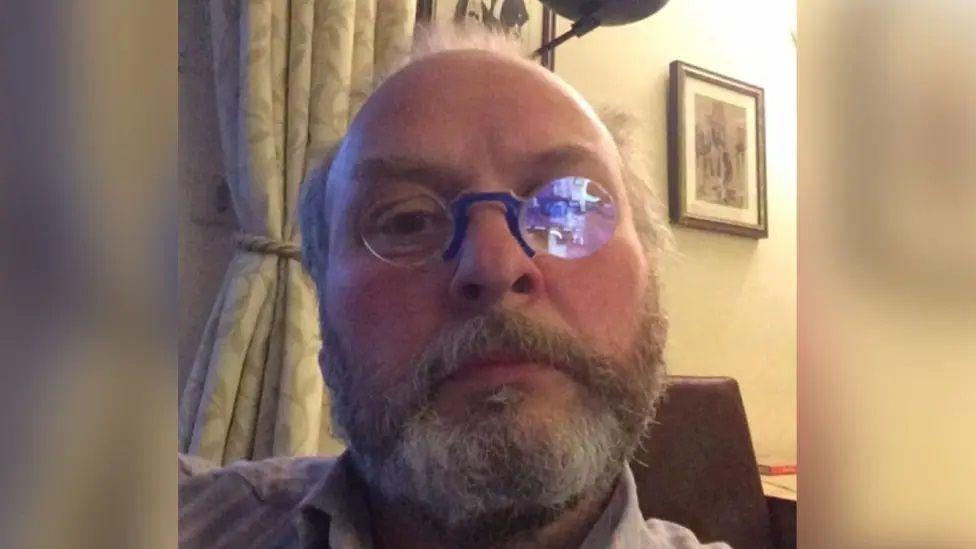'No closure' for women harmed by surgeon
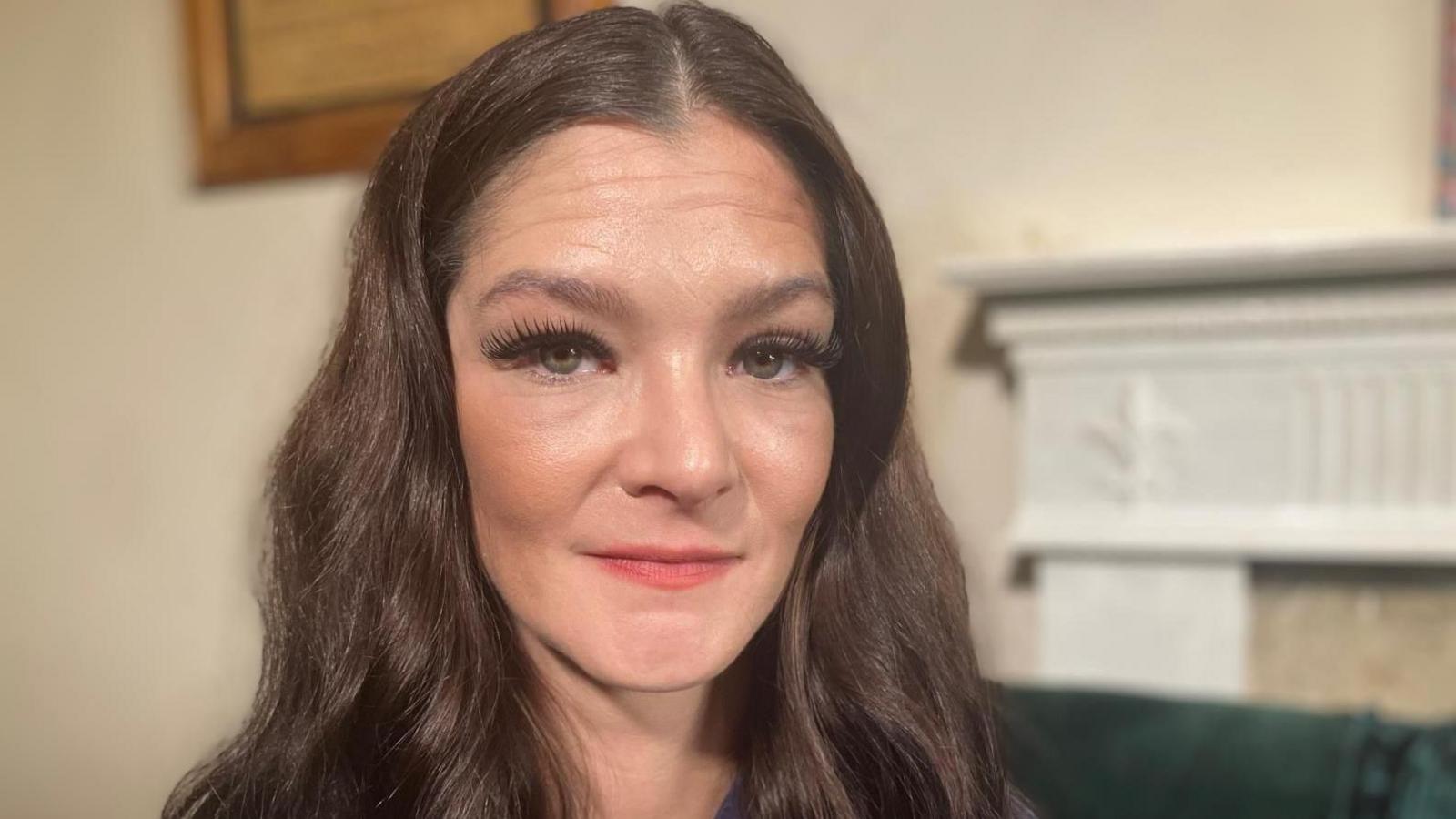
Hannah Green said she was diagnosed with complex post-traumatic stress disorder after being under the care of Daniel Hay
- Published
Women who say they have been "traumatised" by a former NHS gynaecologist have said there is no closure for them after a report identified major failings in his care.
Daniel Hay operated on hundreds of women at the University Hospitals of Derby and Burton (UHDB) NHS Foundation Trust before he retired in 2020.
On Wednesday, a long-awaited report, which explored his care between 2015 and 2018, commissioned after his colleagues raised concerns, found Mr Hay's risky practices and shortcuts contributed to women suffering severe physical harm.
In response, UHDB said it was "truly sorry" to the women who received care "below the standards expected".
The report, which saw a panel contact 325 women treated by Mr Hay, identified several as suffering moderate to severe physical harm, with some telling a panel that they were made to feel like having major treatment was their "only option".
This included patients who had undergone hysterectomies - a surgical procedure that removes the womb.
Many women said Mr Hay's treatment "adversely affected" their mental health, affecting their relationships and jobs.
Hannah Green, 35, told the BBC she was diagnosed with complex post-traumatic stress disorder after being under the care of Mr Hay.
"I don't have any feelings any more. My daughter notices this in me.
"The only real emotion I have now is anger," she said.
Ms Green had been suffering with symptoms of endometriosis - which was not diagnosed at the time - when she was referred to Mr Hay in 2016.
She told the BBC Mr Hay had a reputation for being "the best".
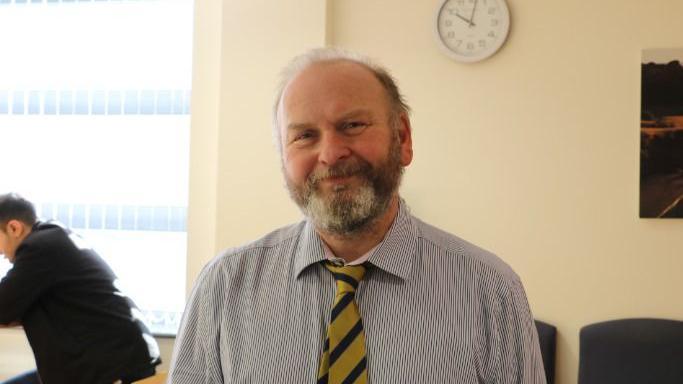
Mr Hay has been interviewed under caution by police
During a 20-minute appointment with Mr Hay, she said he did not make eye contact with her, did not give her any form of physical assessment and spoke into a Dictaphone rather than directly to her.
Ms Green underwent a laparoscopy - a procedure that involves placing a camera in the tummy or pelvis to diagnose or treat conditions - and a hysteroscopy - a test to look inside a womb, using a thin tube with a small camera inside it.
Following the procedures, Ms Green said she was sent home with "no answers" as Mr Hay had already gone home for the day.
"I sat in bed bleeding and I waited for three weeks, and then Mr Hay told me he didn't find anything significant," she said.
Ms Green said she made a complaint to the trust at the time, after attempting to call them for answers every day for three weeks.
'Insult to injury'
She was referred back to Mr Hay in 2017 and underwent a second laparoscopy.
Ms Green said the doctor who made the referral told her Mr Hay had been a mentor of hers, and described him as a "rock star".
Following that procedure, Ms Green said she was, once again, not seen by Mr Hay or a member of his team and therefore left without answers about what had happened.
She later learned that during the second laparoscopy, a tissue sample was taken from her cervix, something she had not consented to.
"I asked the doctor who reviewed my complaint if there was another way to word what had happened to me. He said it could be assault," Ms Green said.
"I asked 'should I call the police or are you going to?'"
Mr Hay, who is in his 60s and from Alfreton in Derbyshire, is currently being investigated by Derbyshire Police and was interviewed under caution earlier this year.
Ms Green said she was told by the UHDB her case concluded "no harm" was caused to her. She disputes this.
It was not until 2020 that Ms Green was diagnosed with endometriosis, external, and she said she had still not been referred to a specialist or received any treatment.
Last week, Ms Green received a letter from the trust to say the report into Mr Hay's care would be published.
She said the letter stated the trust hoped it would offer a form of "closure" to the patients, adding that the remark "added insult to injury".
"We've waited for three years for this.
"I can't understand how they think this is an adequate response," she said.
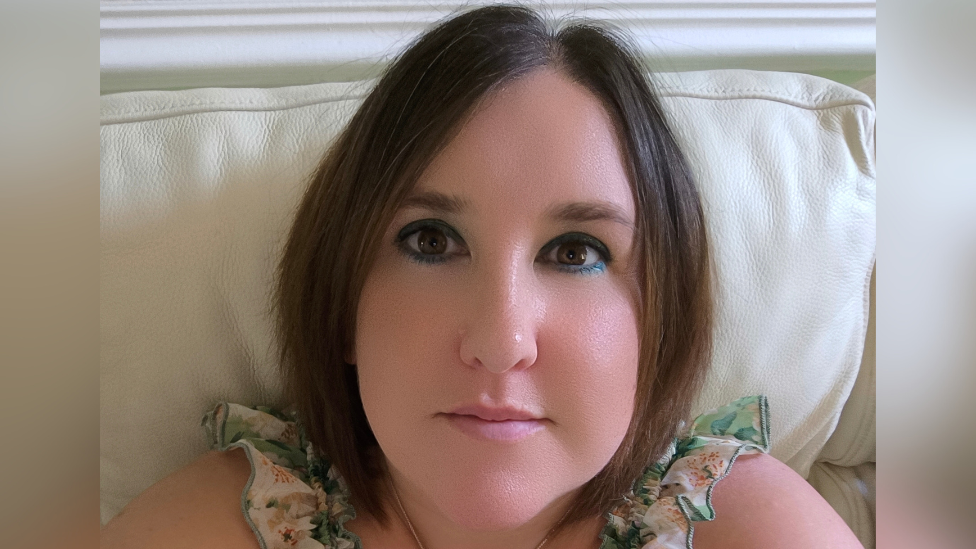
Melissa Newbold said the effects of her treatment had "taken a toll" on her family
Melissa Newbold, from Derby, said she was left "traumatised" after undergoing a full hysterectomy under the advice of Mr Hay.
The 40-year-old - who had struggled with painful periods and heavy bleeding prior to the procedure - said she decided to have a contraceptive coil fitted following the birth of her youngest son.
She said Mr Hay became "agitated" during an attempt to fit the coil in 2013, which involved inserting it through her cervix into her uterus.
Despite her being in "agony" and a nurse advising him to stop, he continued the procedure, Mrs Newbold said.
"The third time the nurse actually shouted at him and said 'you're going to have to stop', and he went off in a huff," she told the BBC.
Following the failed procedure, she said she spoke to Mr Hay, who advised her to have womb ablation - which destroys the lining of the womb to stop heavy menstrual bleeding.
The womb ablation was successful, but Mrs Newbold continued to struggle with pain and on returning to Mr Hay, she was advised to have a full hysterectomy.
She said Mr Hay warned her she had a high risk of cancer, and told her she would "feel fantastic" afterwards.
Mrs Newbold, who had no plans to have any further children, underwent the hysterectomy.
'God complex'
Following the surgery, she said she was not offered hormone replacement therapy, which she was later told she should have been immediately after the surgery.
Instead, she began to suffer from what she described as "severe" menopause symptoms, including headaches, thinning hair, hot flushes and mood swings.
"They just left me to it and I thought I was going mental to be honest," she said.
A doctor she spoke to, after taking legal action against UHDB, which is ongoing, told Mrs Newbold that she could and should have been offered to have the coil fitted under a general anaesthetic.
She told the BBC she would have never agreed to the hysterectomy had she known there was another option.
Of Mr Hay, she said: "He was very abrupt with me, so I felt I could never ask him a question - he made you second-guess yourself.
"He's got a god complex, that's what I think."
She added: "I'm angry at Mr Hay, but I think I'm angrier at the trust.
"The trust should be working for patients but it seems like they're protecting the staff.
"There will never be any closure because I will be suffering from this until I'm in my 50s or 60s."
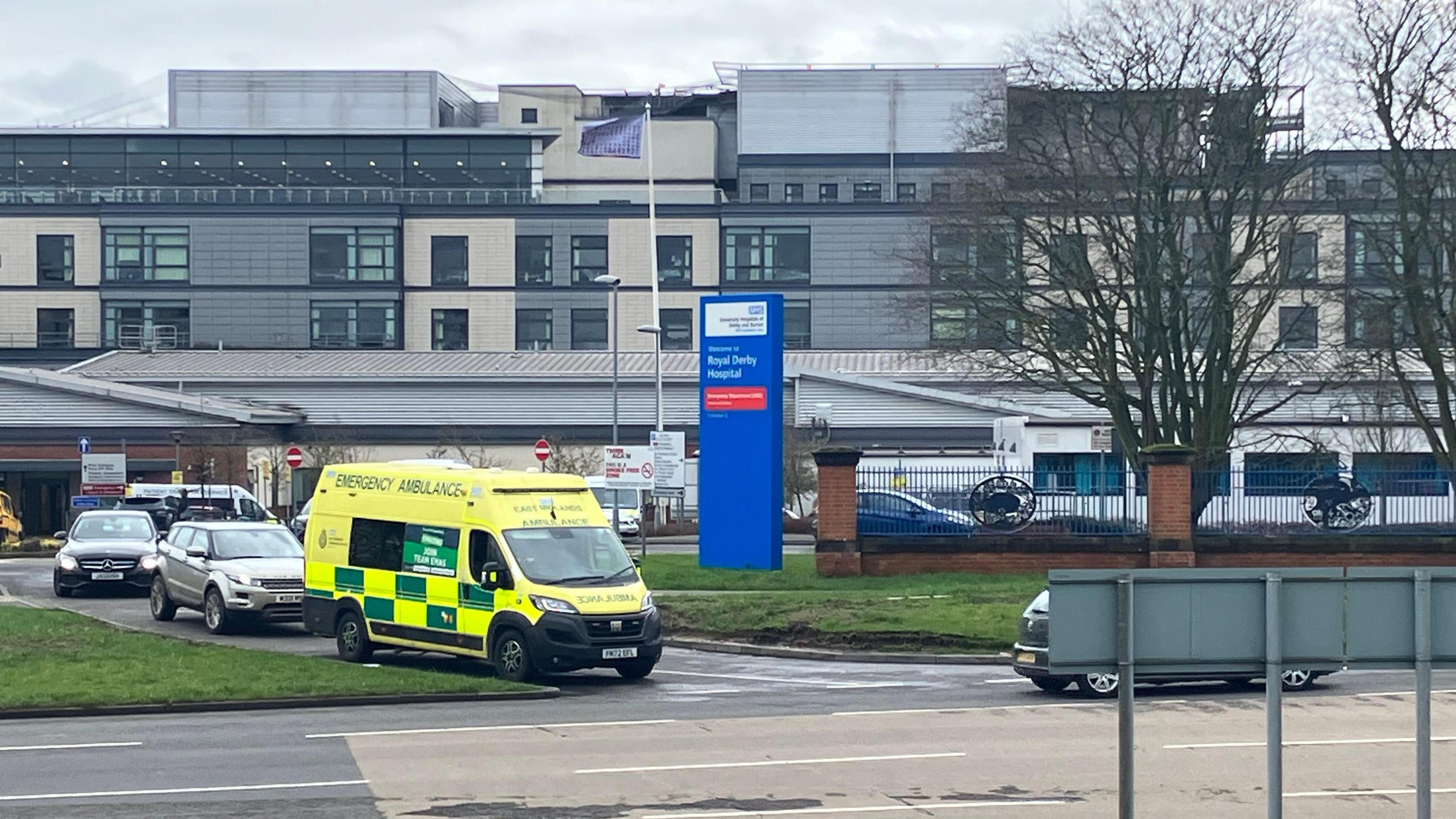
Mr Hay relinquished his medical licence in July 2021, having retired citing mental health concerns in July 2020
Karen Reynolds, a partner of the Derby branch of law firm Freeths - which is supporting a number of women in a group claim against the trust - said it was "disappointing" it had taken three years for the report to be sent to patients.
"It's clear that there were opportunities to deal with the difficulties Mr Hay was clearly having in making decisions about surgery and treating the patients.
"There were whispers in corridors, management should and could have known and did nothing about it," she said.
"The concern I have again is that lessons aren't learned.
"I think the NHS needs to take a really good look at itself. There are brilliant staff in the NHS who do a good job every day of the week, but there are also staff who do not and it seems like they carry on with with no checks or balances on them."
In a statement, Dr Gis Robinson, executive chief medical officer at the NHS trust, added: "We want to reiterate our unreserved apologies to the women who received care from Mr Hay that was far below the standards expected.
"We also accept that our initial communication and approach about the review was not as compassionate or supportive as it should have been, for which we are truly sorry.
"Following the report we made important changes, with clearer consent procedures and enhanced clinical oversight so any issues with care can be identified more quickly, and improved post-procedure reviews for women.
"We will continue to closely monitor and review these to ensure they are effective and fully integrated, and use our learning to support and inform the next stage of the review."
The trust has invited anyone needing reassurance to contact its Patient Advice and Liaison Service.
Get in touch
Tell us which stories we should cover in Derby
Follow BBC Derby on Facebook, external, on X, external, or on Instagram, external. Send your story ideas to eastmidsnews@bbc.co.uk, external or via WhatsApp, external on 0808 100 2210.
- Published1 October
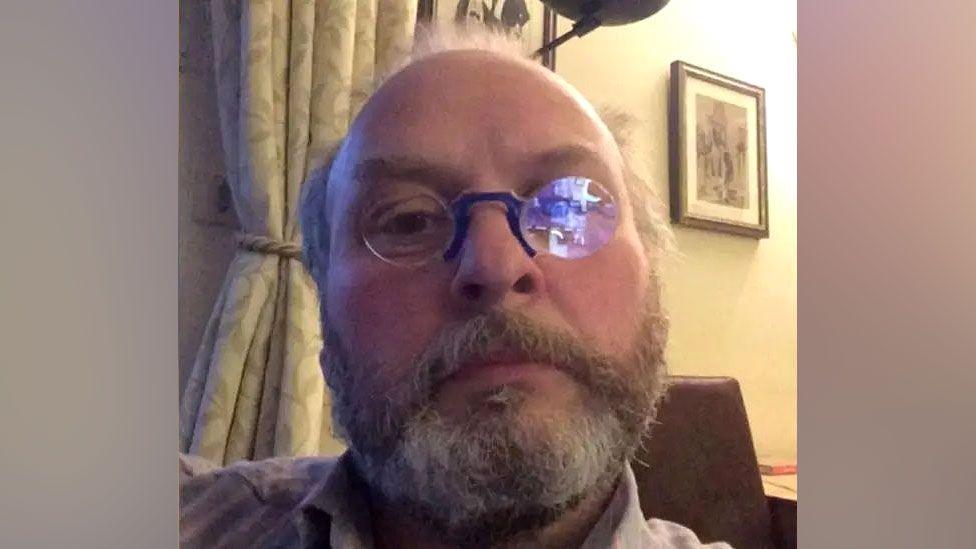
- Published1 April
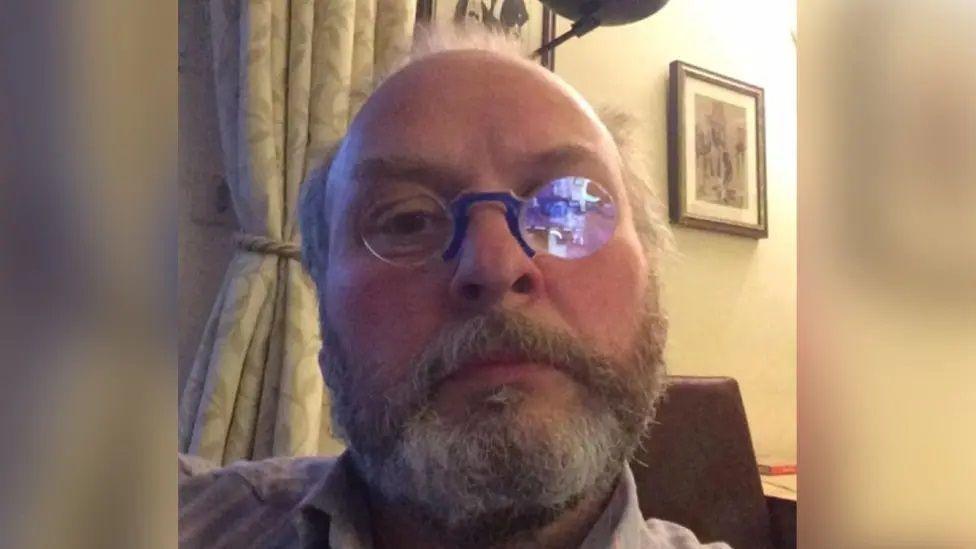
- Published26 November 2024
